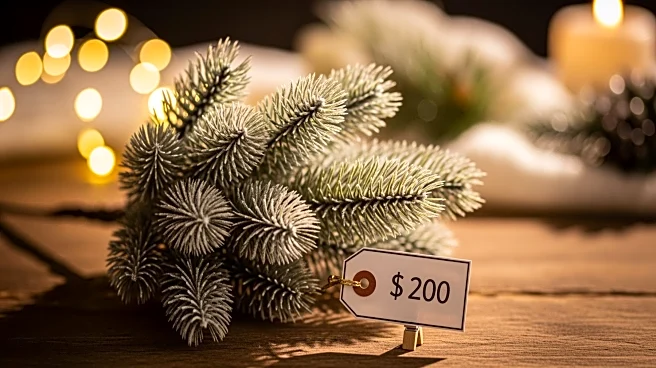What's Happening?
Artificial Christmas trees are set to become more expensive this holiday season, largely due to tariffs. Mac Harman, CEO of Balsam Hill, discussed the impact of these tariffs on the pricing of fake Christmas trees in an interview with NPR's Ayesha Rascoe.
The tariffs have increased the cost of importing materials necessary for manufacturing these trees, leading to higher retail prices. This price hike comes at a time when consumers are already facing inflationary pressures on various goods, potentially affecting holiday shopping decisions.
Why It's Important?
The increase in prices for artificial Christmas trees due to tariffs highlights broader economic challenges faced by consumers and retailers. As tariffs raise costs for manufacturers, these expenses are often passed on to consumers, contributing to inflation. This situation underscores the interconnectedness of international trade policies and domestic economic conditions. Retailers may experience reduced sales if consumers opt for alternative decorations or forego purchases due to higher prices, impacting the holiday retail market.
What's Next?
Retailers and consumers may need to adjust their holiday plans in response to the increased costs of artificial Christmas trees. Some consumers might seek out discounts or alternative decorations, while retailers could explore strategies to mitigate the impact of tariffs, such as sourcing materials from different countries or offering promotions. The situation may also prompt discussions among policymakers regarding the effects of tariffs on consumer goods and potential adjustments to trade policies.
Beyond the Headlines
The rising cost of artificial Christmas trees due to tariffs may also have cultural implications, as holiday traditions could shift if consumers change their decorating habits. Additionally, the situation raises questions about the sustainability of relying on imported materials for holiday products and the potential benefits of encouraging domestic production.















